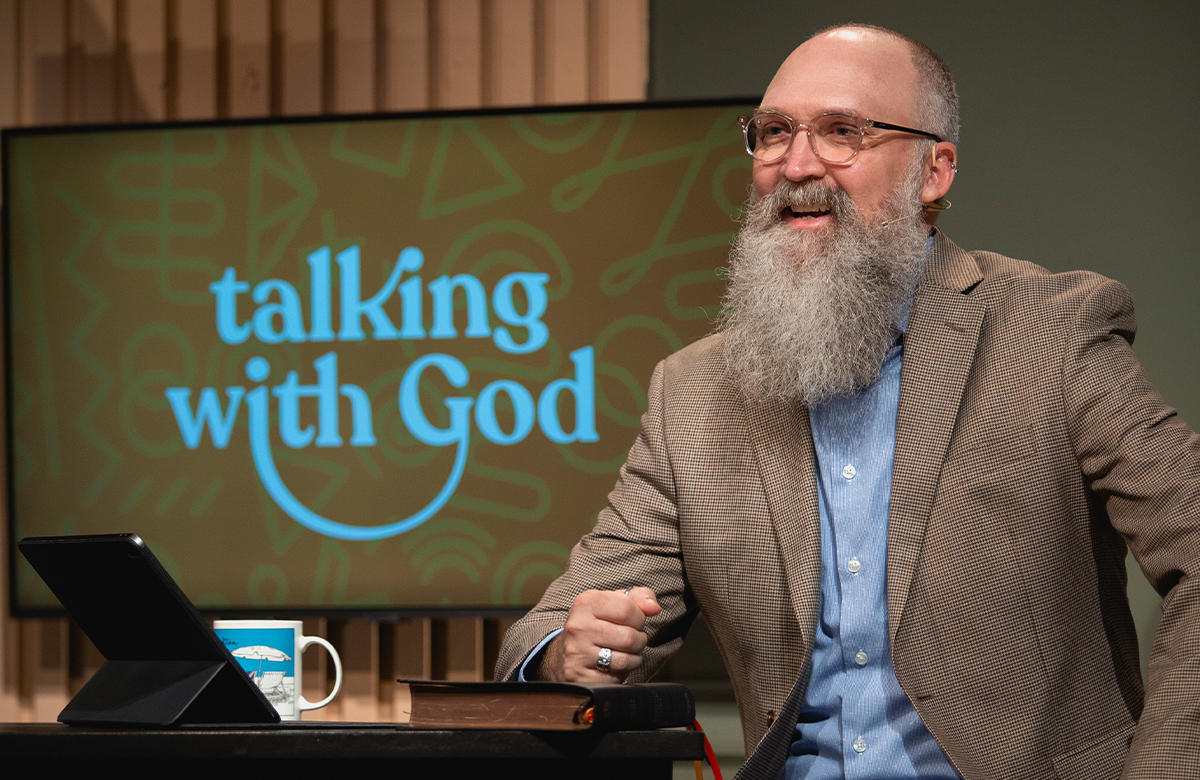
Zechariah
Zechariah
Who wrote it?
Zechariah 1:1 identifies the author of the book as the Prophet Zechariah.
When(ish) was it written?
Zechariah was likely written in two primary segments, between 520 and 470 BC.
Why was it written?
Zechariah emphasized that God has used His prophets to teach, warn, and correct His people. Unfortunately they refused to listen–their sin brought God’s punishment. This book also bears evidence that even prophecy could be corrupted. History shows that in this period, prophecy fell into disfavor among the Jews, leading to the period between the Testaments when no lasting prophetic voice spoke to God’s people.
Some Key Verses
[quote] Therefore say to them, Thus declares the Lord of hosts: Return to me, says the Lord of hosts, and I will return to you, says the Lord of hosts.
– Zechariah 1:3 [/quote]
[quote] “As I called, and they would not hear, so they called, and I would not hear,” says the Lord of hosts.
– Zechariah 7:13 [/quote]
[quote] Rejoice greatly, O daughter of Zion! Shout aloud, O daughter of Jerusalem! Behold, your king is coming to you; righteous and having salvation is he, humble and mounted on a donkey, on a colt, the foal of a donkey.
– Zechariah 9:9 [/quote]
[quote] And I will put this third into the fire, and refine them as one refines silver, and test them as gold is tested. They will call upon my name, and I will answer them. I will say, ‘They are my people’; and they will say, ‘The Lord is my God.’
– Zechariah 13:9 [/quote]
A Quick Summary
Zechariah teaches that salvation may be obtained by all. The last chapter depicts peoples from all over the world coming to worship God, who desires that all people follow Him. This is not the doctrine of universalism (that all people would be saved because it is God’s nature to save). Rather, the book teaches that God desires that all people worship Him and accepts those who do, regardless of their national or political expressions, as in the freeing of Judah and Jerusalem from their political enemies.
Zechariah preached that God is sovereign over this world. His visions of the future indicate that God sees all that will happen. The depictions of God’s intervention in the world teach that ultimately He will bring human events to the end He chooses. He does not eliminate the individual’s freedom to follow God or rebel, but holds people responsible for the choices they make. In the last chapter, even the forces of nature respond to God’s control.
Foreshadowings
Prophecies about Jesus Christ and the messianic era abound in Zechariah. From the promise that the Messiah would come and dwell in our midst (Zechariah 2:10-12; Matthew 1:23) to the symbolism of the Branch and the Stone (Zechariah 3:8-9, 6:12-13; Isaiah 11:1; Luke 20:17-18) to the promise of His Second Coming where they who pierced Him will look upon Him and mourn (Zechariah 12:10; John 19:33-37), Christ is the theme of the book of Zechariah. Jesus is the Savior of Israel, a fountain whose blood covers the sins of all who come to Him for salvation (Zechariah 13:1; 1 John 1:7).
What does it mean?
God expects sincere worship and moral living of us today. Zechariah’s example of breaking through national prejudice reminds us to reach out into all areas of our society. We must extend God’s invitation of salvation to people of all national origins, languages, races, and cultures. That salvation is only available through the shed blood of Jesus Christ on the cross, who died in our place to atone for sin. But if we reject that sacrifice, there is no other sacrifice through which we can be reconciled to God. “There is no other name under heaven given among men by which we must be saved” (Acts 4:12). “Behold, now is the favorable time; behold, now is the day of salvation” (2 Corinthians 6:2).
Discussion Questions
[expand title=”Holt Venue”]
- Take a few minutes to read aloud the Scripture from Zechariah 7:1-14, 8:18-19, Matthew 9:12-13. What verses or ideas stand out to you from these passages? What questions do you have? What “next step” are you considering as a result of your interaction with God’s Word?
- Think of some words to describe your personality. Are you more stubborn or compliant? More headstrong or reasonable? How does this affect your spiritual life?
- Do things like reading the Bible, going to church, or attending Life Group feel like “the right thing to do” rather than an opportunity to grow spiritually? What is the solution?
- How does spiritual stubbornness show up in your life? Where do you struggle to believe and act on what God has given you in His Word?
- The solution to our spiritual stubbornness is to acknowledge it before God and believe that through the Gospel, God can change us. How can your Life Group help you to grow spiritually in this area of your life?
[/expand]
[expand title=”REO Town Venue”]
- Take a few minutes to read aloud the Scripture from Zechariah 3:1-10, Hebrews 4:13, Revelation 12:10, 2 Corinthians 5:21, Romans 8:31-34, 38-39. What verses or ideas stand out to you from these passages? What questions do you have? What “next step” are you considering as a result of your interaction with God’s Word?
- Read the courtroom scene presented in Zechariah 3:1-10 and identify who is playing out the various legal roles. Specifically: who is the judge; who is the defendant; who is the prosecutor; and who is the defense attorney?
- As you consider both a) the filthy clothes that Joshua (the high priest & representative of the people) was wearing and b) the accusations of Satan, how do you process your own feelings and memories of guilt and shame? Do you ever feel beat up by your past or condemned spiritually?
- If you are a Christian, do you spend more time negatively fixating on your sin, or celebrating the fact that you are “not guilty” because you are ultimately like a stick that has been ‘snatched out of the fire’?
- In view of the cross and Romans 8:31-39, how specifically does Jesus not only remove our ‘filthy clothes’, but also ‘reclothe’ His people with righteousness?
- How does God’s justification and grace empower you to think about and resist the presence of sin and satanic accusations?
[/expand]
[expand title=”Westside Venue”]
- Take a few minutes to read aloud the Scripture from Zechariah 7-8, Ezra 4:1-5, Isaiah 49:6, Ephesians 2:13-22. What verses or ideas stand out to you from these passages? What questions do you have? What “next step” are you considering as a result of your interaction with God’s Word?
- How does you family of origin (Mom, Dad, Grandpa, Grandma, etc.) deal with fear?
- What encourages you about God’s desire for vulnerability?
- Check out Zechariah 7:8-10, what strikes you as the most challenging practice here, and why?
- Spend some time confessing your fears to one another (i.e. I don’t know if I am loving my spouse well, I’m afraid I am going to relapse, etc.) and praying for God’s help to trust him.
- How are you best built up? What encourages you?
[/expand]

























